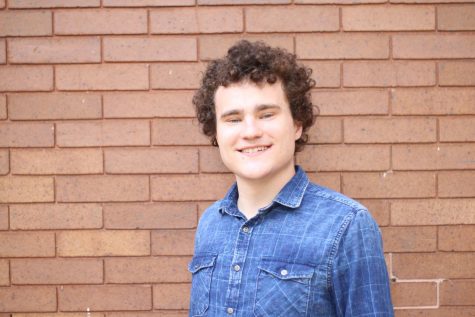SAGES faculty and Sigma Tau Delta help incarcerated people gain access to books
November 1, 2019
Many Case Western Reserve University students forget their old books, leaving them to languish away in a closet or on their parents’ bookshelf. With the internet, it’s easy to forget that books can function as gateways to other worlds beyond the walls of your room. SAGES faculty, with the help of Sigma Tau Delta, the International English Honor Society, is organizing the Open Book Project, a book drive for incarcerated people at Grafton Correctional Institution.
For prisoners, books offer a crucial way to explore the world outside their cell.
“A lot of incarcerated individuals need books because they’re pursuing college classes or because they just have a desire to read,” said English professor Mary Assad. “Prison is often not thought of as a place to donate books but it is very needed right now.”
Assad said the book drive is looking for both fiction and non-fiction work. Since many prisoners are pursuing master’s or bachelor’s degrees, people should not worry about books being too dense or theoretical. Professor Benjamin Sperry said many libraries are made up mostly of popular fiction, so there is a demand for non-fiction work, especially at the Grafton Correctional Institution.
“They have a lot of discretionary time,” said Sperry. “They’re hungry to learn, they’re bright people. The more you work with them the more you see that. Whenever an idea comes up you’ll see that, you’ll hear ‘can I get a copy of that book?’ There’s a hunger for books.”
Sperry has seen this hunger firsthand as a teacher at Cuyahoga County prisons since 2002. He currently teaches a SAGES course that has a component class at Lorain Correctional Institute. The group takes the same course CWRU undergraduates take, and the two groups are brought together for workshops. The program is modeled off the Inside-Out Prison Exchange Program started at Temple University.
“On Saturday mornings twice a semester we put the Case students on a bus, take them to Lorain and then from 9-11 we do a workshop together,” said Sperry. “We put them into research teams, they do projects together.”
Along with fulfilling an educational role, books function as entertainment. In prisons where internet access is limited, if not completely barred, books offer a chance to indulge one’s curiosity about the world.
“It’s entertainment in the sense that if you’re interested about India, you’ll get a book about India,” said Sperry. “If there’s a spark you’ll pursue it. They have time and the wherewithal intellectually. Here we are on a campus with a lot of books that are begging for readers.”
Sperry believes that books give many incarcerated people a second chance at education. The majority of his students are in their 30s and had their last formal educational experience when they were in high school.
“Oftentimes they weren’t very attentive in school. They may have failed out of high-school or their schooling got interrupted,” said Sperry. “Now here’s a chance for this mature person who has the time to think about things [to] go back, because at the time there were so many distractions and pressure that they were under. It makes them a wonderful group to teach. Sure, they may have irregular backgrounds, but they’re eager and hungry and ready to go far.”
Donated books can be dropped off in the English Department’s main office in Guilford 106B during normal business hours. Sigma Tau Delta will be hosting the collection drive this semester on Nov. 8 in Nord from 12:30-3:00 p.m. and on Nov. 11 in Thwing from 12:30-2:00 p.m.



